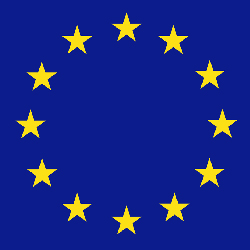White Papers
How Forex Markets Were Blindsided By Brexit Vote - Swiss Finance Institute White Paper

The SFI has issued a White Paper exploring how financial markets got Brexit so wrong, and how the episode of last June demonstrates limits of "efficient market theory".
While British and European Union political leaders cross
rhetorical swords over Brexit, the financial and academic
community is trying to figure out whether a failure of most
investors to predict last June’s momentous referendum result
reveals major failings.
The Swiss Finance
Institute has issued a White Paper, authored by ETH Zurich
researchers, Ke Wu, Spencer Wheatley and Swiss Finance Institute
Professor Didier Sornette, entitled How Brexit Refuted Market
Efficiency.
“The nine-hour, district-by-district process of announcing the
results of the EU Referendum that took place in the UK on 23 June
2016 provided a rare real-life experiment with which to test the
efficient market hypothesis,” it said.
The document goes on to say: “Crucially, the market - ordinarily
robed in complexity - momentarily exposed itself in a simplified
state, allowing an exceptionally objective analysis of responses
to fundamental information. The stream of 382 local area vote
count announcements provided the stimulus, and the British pound
market in US dollars the response.”
The paper claims that by mapping prior polling results onto early
voting announcements, the “Brexit result could have been
predicted with high confidence in real time after only 20 out of
382 local voting results had been revealed, and hours before the
market priced in the outcome. This failure of the market suggests
a glaring contradiction to the paradigm of efficient markets, in
a `semi-strong’ form”.
Last June UK voters chose, by a 52 per cent/48 per cent split, to
end the UK’s 44-year membership of the European Union, arguably
the greatest change in western European politics since the
collapse of the Berlin Wall and reunification of Germany. The
vote has been seen as a revolt by people upset about issues such
as mass immigration, high contributions to the EU, bureaucracy
and lack of full democratic accountability by the EU system.
Critics of Brexit fear departure from the EU spells a retreat
from free trade and a ratcheting up of nationalism.
The Brexit vote triggered a slide in sterling against currencies
such as the dollar and euro; the UK equity market, however, rose
and the UK economy has continued to grow, confounding some of the
gloomier forecasts that a departure from the EU would be
disastrous for the UK.
The fact that so much investment opinion was wrong-footed by
Brexit, as it was by the election of Donald Trump last November,
should cause soul-searching in the financial world. The failure
to anticipate such a result might suggest continued failings in
understanding of voters’ intentions. With French elections
imminent and German polls due later in the year, there is a clear
need for investors to get a stronger handle on political
developments.
Information
“Financial markets have long been regarded as efficient
information aggregators, and effective predictors of the
probability of future events. Belief in these properties
underlies free market systems and economic liberalism. In the
literature, semi-strong market efficiency has usually been tested
by how quickly security prices reflect relevant information that
was obviously publicly available,” the SFI’s White Paper
said.
“However, there are ongoing controversies over several
definitions in the abovementioned tests: the boundary of
“quickly”, the level of rationality, the entanglement of
different types of event impacts and reactions, the operational
market efficiency, the limits to arbitrage, etc. Further, to make
a test of the efficient-market hypothesis operational, one must
specify additional structures like investor preferences, normal
return models, etc., which create a joint hypothesis problem, and
lead to the claim that it is very difficult to carry out such
unambiguous tests outside of an actual laboratory experiment,” it
said.
During the nine hours of `Brexit night’, the market was in the
state of a `natural experiment’, or `quasi-controlled
experiment’, where near-laboratory conditions for studying
markets’ response to fundamental information were present in the
real world. The market was targeted on a single final event: the
referendum result, with only two possible outcomes (leave or
remain), whose market values were widely known to market
participants before, as seen from forecast reports from major
financial institutions including JP Morgan, HSBC, and Goldman
Sachs (conservatively, in the range 1.4–1.5 USD/GBP for remain
and 1.1–1.35 USD/GBP for leave),” it said.
“In this highly active and temporarily simplified market, not
only were the typical functional shortcomings and `distractors’
that plague event studies naturally removed, the often fatal
`joint hypothesis problem’ was conveniently avoided,” it said.
To see an example of other recent coverage of SFI reports, click here.
